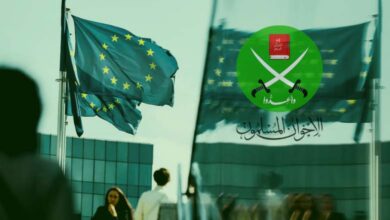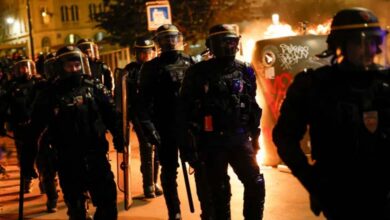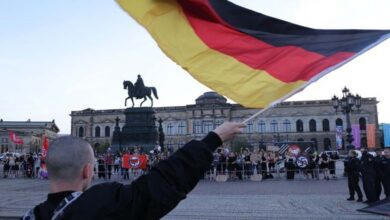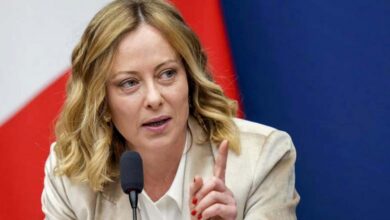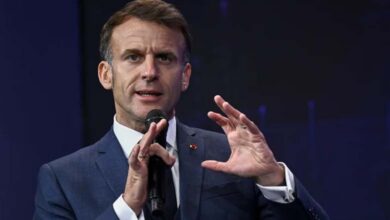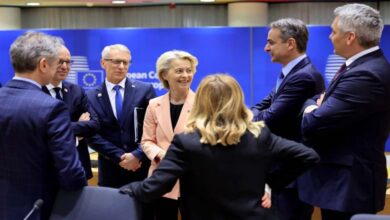Muslim Brotherhood Interface… What Are the Hidden Goals of the Islamic Union in Denmark?
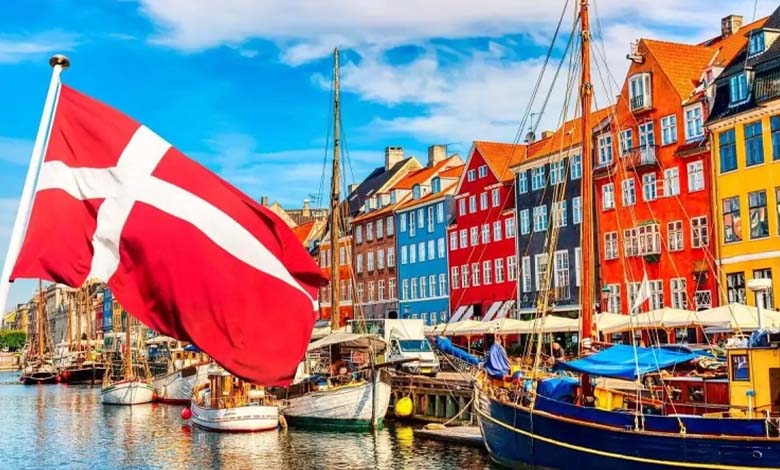
Due to setbacks in the Middle East and the Gulf region, the Muslim Brotherhood has intensified its efforts recently to solidify its presence in the group of European countries, especially Denmark. This presence is represented by the Islamic Union in Denmark.
The Islamic Union in Denmark is considered one of the structures close to the Muslim Brotherhood, with close ties to its European branch: the Union of Islamic Organizations in Europe (currently the Muslim Council of Europe). It was founded in Copenhagen in 2011, officially registered in 2012, and held its first conference in April 2013 under the title “Muslims in Denmark: Identity and Citizenship.”
The founding document of the Union states that its activities and relationships are based on the understanding that Islam is a comprehensive system that addresses all aspects of life. The Union’s reference in understanding Islam is the Quran and the Sunnah as understood by the predecessors of the Ummah, within a framework that combines authenticity and renewal, and a balance between adhering to constants and adopting disciplined flexibility.
According to the Arab Center for the Study of Extremism, the declared goals of the Union include spreading Islam and empowering it in Denmark, providing suitable conditions for Muslims in Denmark to practice their religious rituals, assisting Muslims in building individual and professional capacities through special educational/training programs, defending the interests of Islam and Muslims, helping Islamic associations and centers in Denmark fulfill their roles and strive for development.
Its declared tasks also include representing member entities before the state, receiving new Muslim immigrants, advising, supporting, and assisting them in work and settlement, establishing Islamic schools and institutes, training teachers to work in them, supervising the organization of Islamic holidays and events, conducting Islamic marriage contracts, burying the dead, and organizing funerals according to Islamic Sharia, collecting and distributing Zakat and charitable donations to the needy, combating Islamophobia, and providing psychological and legal support to victims of anti-Muslim racism.
As for the hidden goals, they revolve around the Muslim Brotherhood‘s control over Islamic communities in Denmark, imposing its strategy, recruiting new elements to work throughout Europe, getting closer to officials, buying favors, and providing a solid base for the international organization in case it needs a foothold in Europe or the Scandinavian countries. This involves establishing seemingly independent institutions and organizations, including networks of schools, companies, charitable associations, and other entities.
The Islamic Union currently includes 25 mosques, associations, and Islamic centers from various parts of Denmark, including the Islamic Cultural Center in Copenhagen, the Islamic Cultural Center in Vestre, the Danish Islamic Council, the Noor Mosque, the Islamic League in Denmark, the Sunnah Mosque, Noor Al-Haqq Association, Iqra School, Taiba Mosque, Islamic Association in Denmark, Islamic Endowment in Vejle, Islamic Assembly Foundation, Islamic Gathering Foundation, Arab Cultural Association, Noor for Youth Association, Palestinian Forum, Danish-Arab Friendship Association, and Islamic Endowment in Borg. The Union is led by Samir Al-Rifai, a member of the World Union of Muslim Scholars, affiliated with the Muslim Brotherhood, and listed on terrorism lists in Saudi Arabia, the UAE, Bahrain, and Egypt, according to the Arab Center for the Study of Extremism.
It is worth noting that Europe is now classified as a safe haven for the Muslim Brotherhood, as the group manages to infiltrate Europe early on and conduct its secretive activities under the guise of religious associations, thanks to its exploitation of democratic aspects on the continent.


